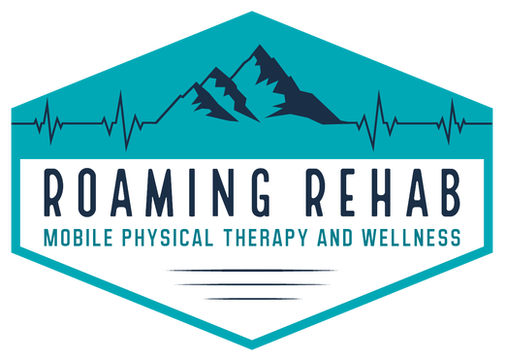Navigating the Medicare Maze: Exploring Medicare, Medicare Advantage, and Medicare Supplement Plans5/17/2024 Navigating Medicare Part 1: Understanding Basics, Eligibility, and Key Terminology*This blog post is for educational purposes. Each insurance is different and has different benefits. It is up to you to know your benefits. Roaming Rehab will verify insurance prior to seeing each person to know exactly what will be covered and the costs associated with services. If you have any questions on if services are covered under your plan, please call!* Navigating the intricacies of Medicare and its various options can be overwhelming. This guide is designed to simplify the process, answering common questions about coverage, plans, and enrollment. Gain the confidence to make informed decisions about your Medicare options with clear and concise information. Deciphering MedicareUnderstand the fundamentals of Medicare, a pivotal federal health insurance program tailored for individuals aged 65 and above. Read more to learn about its components, including Parts A, B, C, and D, and determine your eligibility criteria. Eligibility CriteriaDetermining eligibility for Medicare involves various factors, primarily age and citizenship status. Here's a breakdown:
Medicare ComponentsMedicare consists of four primary parts, each offering different types of coverage to address various healthcare needs. You do not need to have all 4 parts. Most people have either Part A, B, and D with a supplemental medigap plan OR Part C. They are separate areas of coverage:
Important Insurance TerminologyPremium: This is the amount you pay each month for your insurance coverage. It's like a subscription fee that keeps your insurance policy active, regardless of whether you use any medical services.
Deductible: This is the amount you must pay out of pocket for covered services before your insurance starts to pay. For example, if you have a $1,000 deductible, you'll need to pay the first $1,000 of covered medical expenses before your insurance kicks in. *In 2024, each traditional medicare beneficiary had an annual deductible of $240.* Out-of-pocket Maximum (or Limit): This is the most you'll have to pay for covered services in a plan year. Once you reach this limit, your insurance will cover 100% of covered services for the rest of the year. It includes deductibles, co-payments, and co-insurance, but typically excludes premiums. *Original Medicare does not have out of pocket limits* Co-pay: This is a fixed amount you pay for covered healthcare services at the time of the visit. For example, you might have a $20 co-pay for a doctor's office visit or a $10 co-pay for prescription drugs. *Original Medicare does not have co-pays for therapy services* Co-insurance: This is the percentage of costs you share with your insurance company after you've met your deductible. For example, if your insurance plan covers 80% of the cost of a covered service and you have a 20% co-insurance, you'll pay 20% of the cost, and your insurance will cover the remaining 80%. *Original medicare has a 20% Co-insurance for therapy services. This is typically covered by a Medigap or supplemental plan* In-Network: This refers to the group of healthcare providers, facilities, and pharmacies that have contracted with your insurance company to provide services at negotiated rates. Using providers within your network typically results in lower costs for you because these providers have agreed to accept the insurance company's payment terms. *All therapy providers (PT/OT/ST) are opted in with Original Medicare. There is no out of network. However, this does not apply to Medicare Advantage/Replacement plans* Out-of-Network: These are healthcare providers, facilities, or pharmacies that do not have a contract with your insurance company. If you receive care from an out-of-network provider, you may have to pay higher costs, and your insurance company may cover less of the expense, or none at all, depending on your plan. Superbill: A superbill is a detailed invoice or receipt that healthcare providers give to patients after a visit. It includes the services provided, the corresponding charges, and any diagnosis or procedure codes. Patients can use superbill to submit claims to their insurance company for reimbursement if the provider is out-of-network. This document helps ensure that insurance companies have the information they need to process claims accurately.
0 Comments
Leave a Reply. |
Roaming RehabEveryone can contribute to this blog! Do you have a suggestion for a topic? Archives
May 2024
Categories |
Proudly powered by Weebly



 RSS Feed
RSS Feed